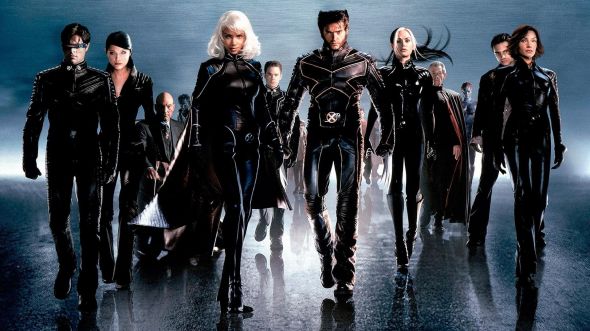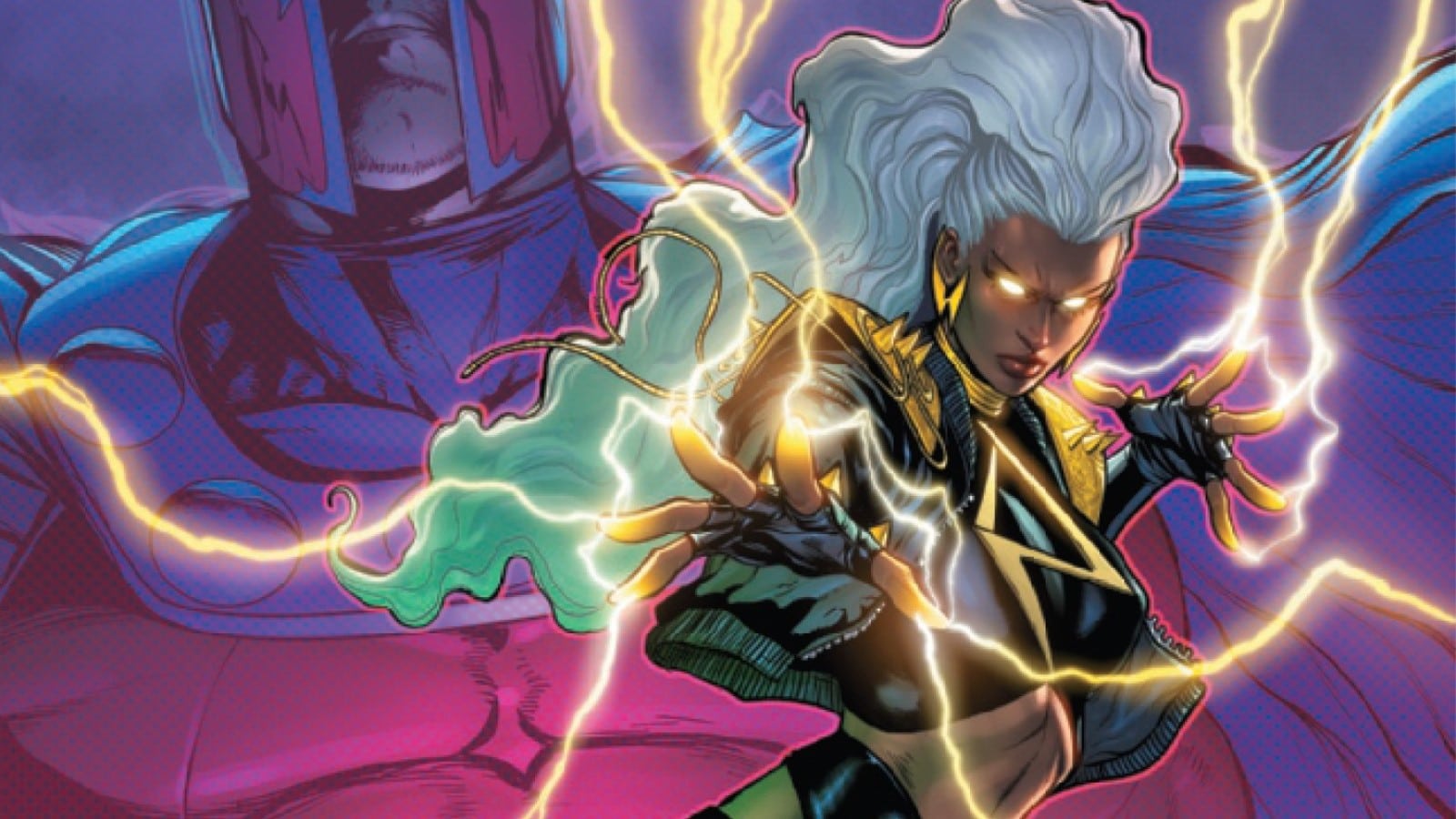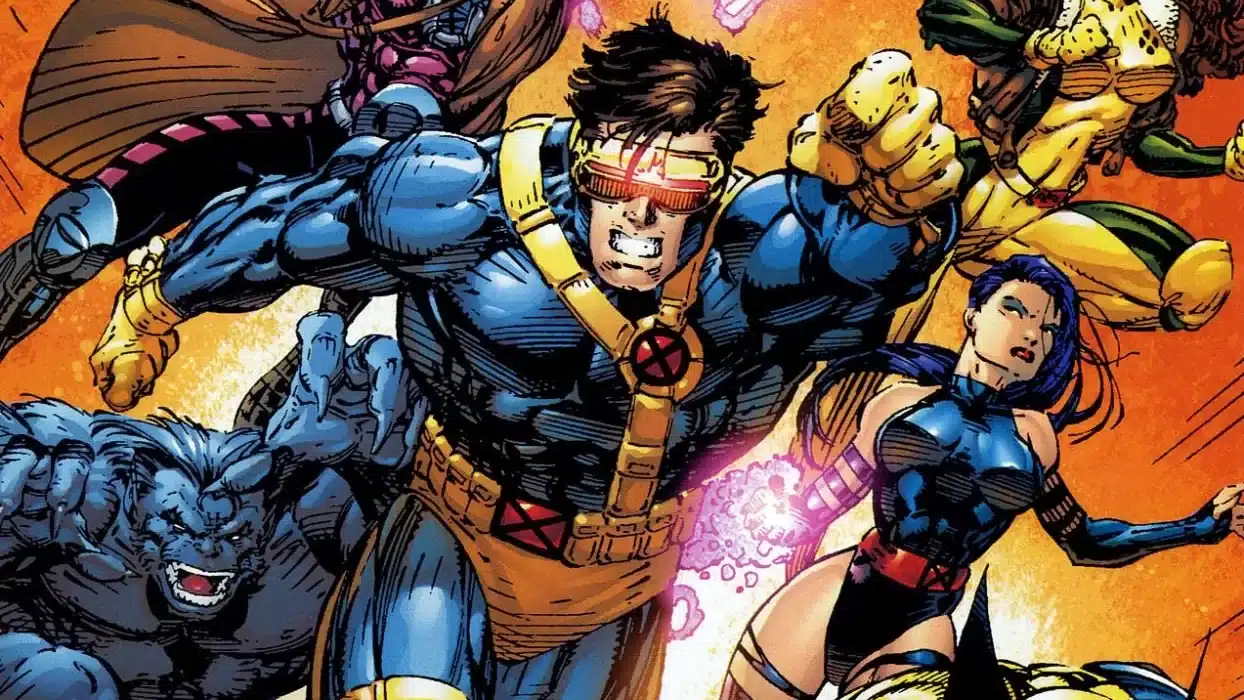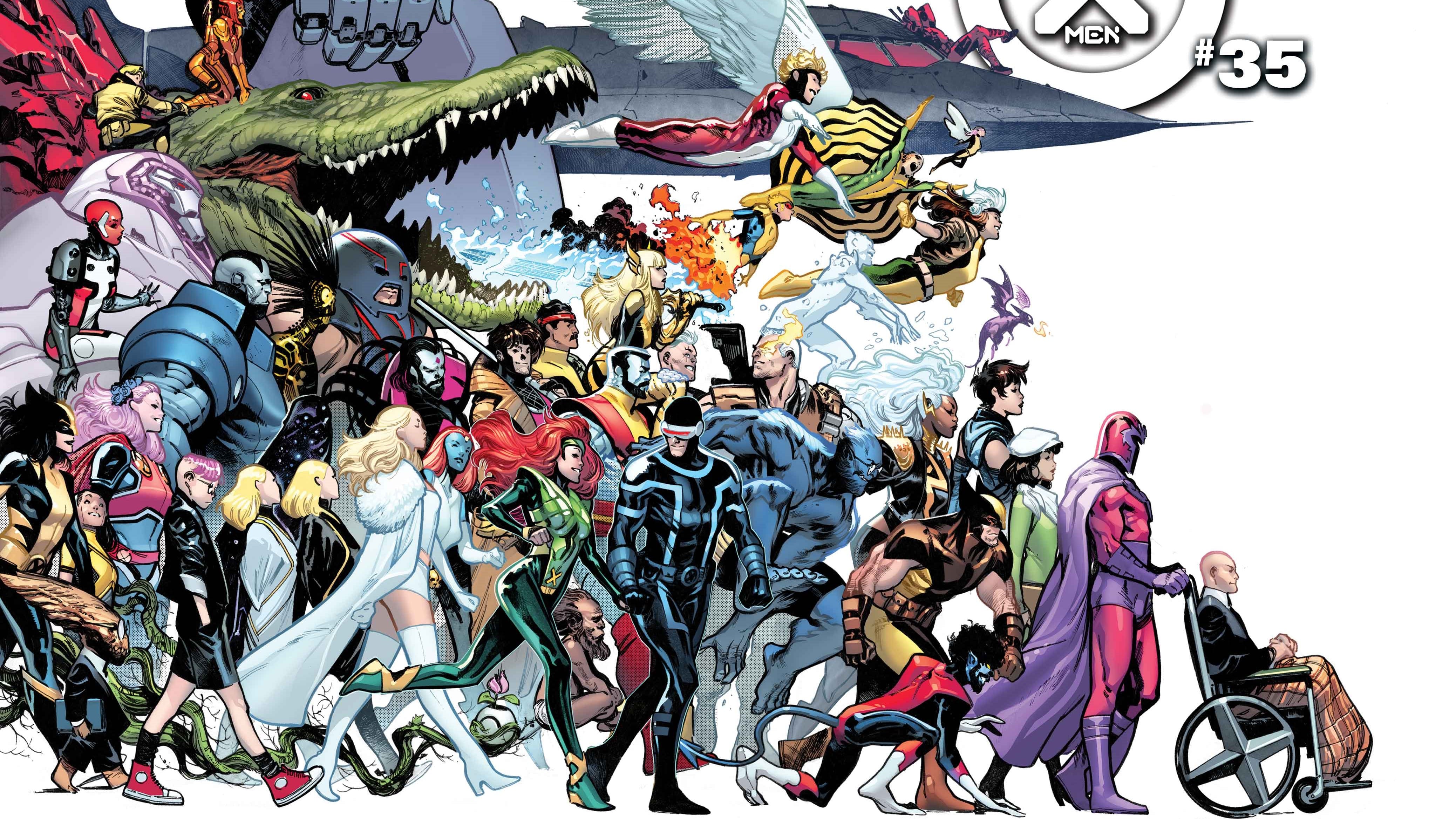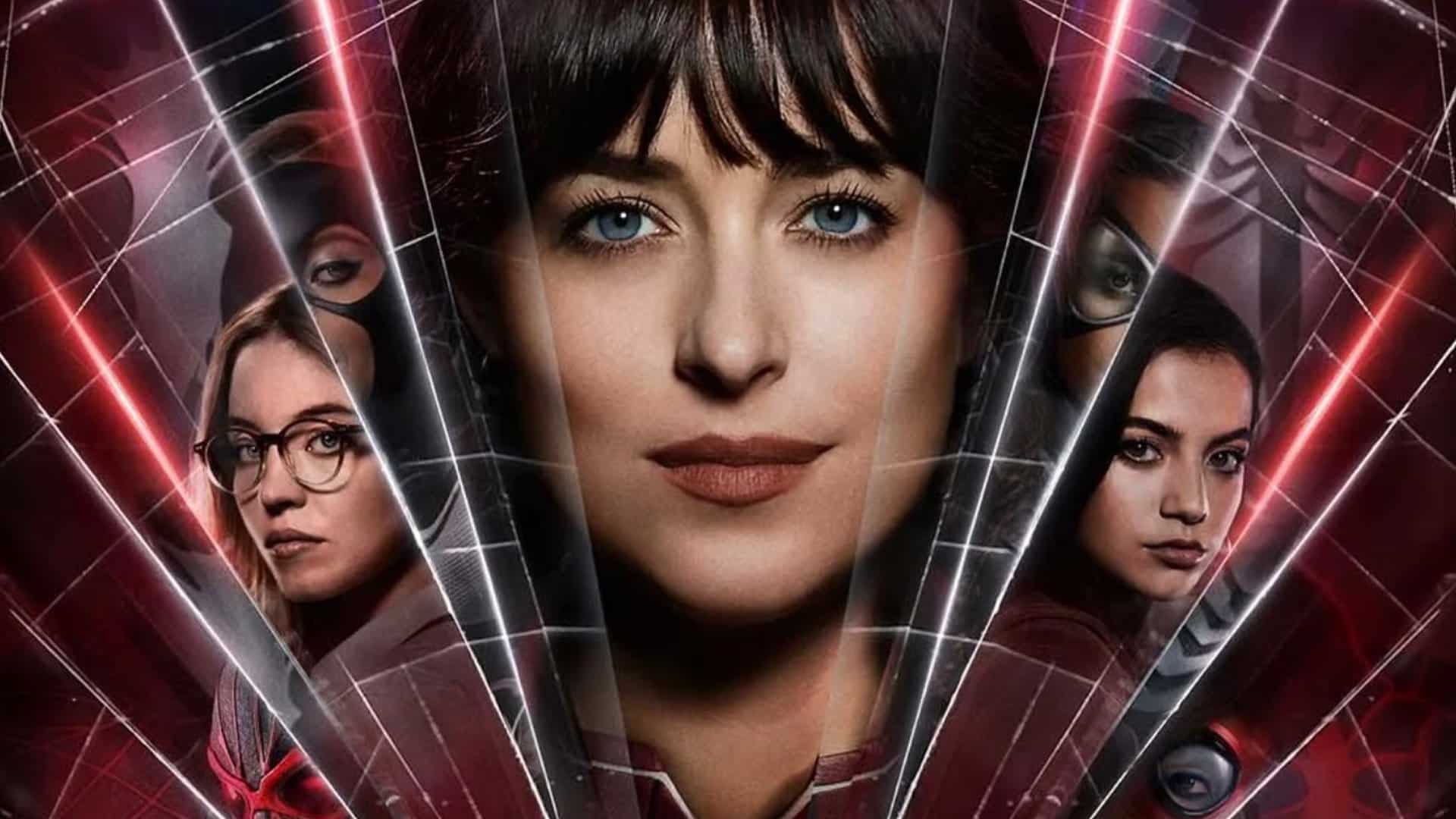I had a very busy week and absolutely no time to research Sage so this week I am doing something a little different. I have been working on this for a few months on and off and with Apocalypse close approaching this seemed like a good time. If you disagree with this post, please leave a comment, I would love to do a follow up article on this. Thanks!
I remember it like it was yesterday, my parents were divorced and my mom didn’t want me seeing it because I was only 9 years only and it was rated PG-13. My dad knew I had been reading my copy of Peter Sanderson’s Ultimate Guide to the X-Men cover to cover and was dying to watch this movie. On one of his weekends, late August or early September, we walked in the crisp evening air to the historic Mayflower Theater and watched Bryan Singer’s X-Men. The speakers were fuzzy, the seats uncomfortable, and the projector literally cut out during the climax, but I loved every second of it. Three years later we did it again and drove home talking about how excited I was for the Dark Phoenix.

The start of a horrible addiction
These movies have meant a lot to me so I am not even going to pretend I am unbiased. I have gone for a long time just assuming that everyone held the franchise in the same regard as I did but recent conversations have made me realize, some people think these movies are horrible. I have read more X-Men comics than I would want to admit and I’ll freely admit that these films aren’t just the panels coming to life, but I hope you’ll see that that isn’t a bad thing. What Bryan Singer, David Hayter, Lauren Shuler Donner, and everyone else involved did wasn’t just copy Claremont’s epics, they mutated them into something engaging for wider audiences.
The first big thing to understand is the film landscape in 2000 was widely different than it is today. Marvel saw itself as a company who did two things, publish comics and license intellectual property based on those characters. They weren’t a film studio and had no intention of making movies, that’s why they licensed the right for X-Men movies to Orion Pictures, best known at the time for Caddyshack, in 1984. Those rights eventually were sold to 20th Century Fox in 1994 but even though X-Men as franchise was at its peak popularity, Fox couldn’t get anything off the ground. Bryan Singer signed on to the movie in 1996, coming off the success of The Usual Suspects, and the script went through several revisions before becoming what we have today. Fox didn’t have a huge amount of faith in the film, the last major film based on a comic book was 1997’s Batman & Robin, well known for being mediocre at the box office and critical poison. Superman had some film success in the 70’s and Batman in the 90’s but comic book movies weren’t the sure bet we see them as today. Fox was excited by the success of films like The Matrix and Blade (yes Blade is a comic character but audiences didn’t know that and the movie was not marketed as any more than a vampire action flick), gave X-Men a budget of $75 million dollars, and crossed their fingers.
Signer didn’t just want to take a comic book and put it to film, he wanted to understand why fans loved the X-Men and make something with the parts the best resonated with him. A gay man, Singer connected with mutants being feared and hated for being who they were born to be. That would be his through line, how different mutants reacted to this oppression. In his ensemble cast, four characters stood out for how they dealt with the oppression. Professor Xavier was turned into more of an activist for mutant rights, instead of just a mansion filled with a few adult students he ran a real school for mutants, he proclaimed peace and actively worked towards it. Magneto wasn’t at his physical peak anymore, he was a holocaust survivor who truly believed that peace was never an option, and audiences sympathized with his motives even as his planned to commit heinous crimes. Rogue wasn’t the southern bombshell of the comics, but a timid, mousy, and scared run away who hated what she had become and how people saw her. And Wolverine saw his mutation as something to just live with, not ashamed of what he was, not afraid of what others would think, it was part of him and there was no point fighting it.

Notice how this poster screams sci-fi action, not comic book
This take on the X-Men resonated with audiences, the strong character drama and flashy action drew them in to the tune of $296 million and opened the floodgates for the superhero films of the 2000’s. Singer found a way to take a series that is utterly ridiculous and turn it into one with huge appeal. Gone were the yellow spandex outfits that even Claremont said “when you put it on people it’s disturbing!” and in their place were functional black leather matching uniforms. Convoluted backstories, like Rogue’s, were streamlined. Over the top mellow drama and purple prose was replaced with sharp and emotive dialoge. Singer took what was essential from the comics and jettisoned the rest. Continuity and costumes didn’t matter when the spirit of the X-Men was fully captured on the big screen.
This take on the X-Men also had huge waves outside of the theater. The X-Men comics in 2000 were a bit of a mess, Chris Claremont had just returned to the books to write Uncanny and Adjectiveless and be editor of the line. Marvel had very little faith in the film and they were caught flatfooted when people wanted to get back into the comics after watching the film. The books had all of the worst elements of Claremont’s writing and they were nothing like the X-Men of the silver screen. Marvel shuffled around and had Grant Morrison revamp the X-Men with his seminal New X-Men run which incorporated elements like the leather uniforms, the school being a real school, and mutants being a large population. Mark Millar took the X-Men in a modern, movie inspired direction with Ultimate X-Men that same year. Both books were huge successes. At the same time they resurrected their animation efforts with X-Men: Evolution in 2000, introducing a new generation to the mutants. Not since the early 90’s had the X-Men’s stock been so high.

The movies changed the X-Men comics from this

To this
2003’s X2: X-Men United followed the cardinal rule of sequels, it took everything that worked and made it bigger. Wolverine, replicating his position in the comics, stepped into the spotlight and finally had a chance to be unleashed. Rogue had her internal conflict cranked up when she began dating a boy she could kill if she touched. Storm and Cyclops stepped back as it became obvious they didn’t have a functional role in this series. It gave audiences more of what they wanted and cut out the stuff that didn’t work and they ate it up with $407 million at the box office.
Inspired in part by the masterpiece God Loves, Man Kills, the film worked on a level few genre pieces ever get to. It had action sure, the opening Nightcrawler scene and the mansion assault are still some of the best things to come out of comic book films, but it had something greater, an understanding of why the X-Men are different from other superhero fare. The villain was a man afraid of losing his place in a world of mutants, and the heroes weren’t super, just people trying to survive in the world. Among fans the film was arguably the best movie of the original wave of comic book flicks, going neck and neck with Spider-Man 2. It ended on a big note for fans, Jean died saving the team and the closing shot of a shadow with a huge wingspan over Alkali Lake promised big things from the franchise.

Fans finally got to see Wolverine unleashed in X2
The 2006 sequel X-Men: The Last Stand was a big hit at the box office but wasn’t as well received by fans. The movie made some bold choices, killing of depowering a large portion of the cast, but it fell flat as if it was trying to do too much at once. A schedule conflict made Bryan Singer leave the director’s chair and had Brett Ratner step up to handle a combination of the Dark Phoenix Saga and the Gifted arc from Astonishing X-Men. The movie was, at the time, the most expensive ever produced but its return was only 10% up from that of X2. It wasn’t the investment they were hoping for and threw the future of the franchise for a loop.
Even more than its predecessors, X-Men: The Last Stand, gets a bad reputation. There is a good film buried in there but it is covered in junk. Jean and Magneto own ever scene they are in with a commanding presence and honest emotions. Kelsey Grammer was pitch perfect in his short time as Beast and Ellen Paige seemed to be the Shadowcat these films had been looking for. The film was just overstuffed and it suffered for it. The other X-Men movies were action stories yes, but they had a heart and tried to be intelligent commentary, this showed glimpses of emotion but lost them in the noise. Unlike the others, it lost the spirit of the X-Men.

The expanded cast of The Last Stand was one of the films many problems
X-Men Origins: Wolverine came out in 2009 and was a dumpster fire of a movie. It actually has some great moments, the opening credits are fun and Liev Schreiber, Taylor Kitsch, and Ryan Reynolds breathe life into their characters. Director Gavin Hood fought with the studio to make the film more character driven but eventually lost out. The movie brought nothing new to the table, even Wolverine’s history was covered enough in X2 to make this feel like a retread. More than X-Men: The Last Stand, this film felt like it was missing its soul, it turned the once thoughtful franchise into a generic, special effects showcase. It put the entire franchise on life support, the market had changed in the last nine years and another mediocre film wouldn’t cut it. Fox had to take a risk and do something different.

For most fans this design for Deadpool sums up the films problems
Behind the scenes Fox was in a bit of a panic, X-Men Origins was supposed to become its own series with entries planed for Magneto and a young X-Men movie. With the underperformance of Wolverine and scripting issues with the two anthology movies, Fox decided to do something bold. They smashed the young X-Men script together with the Magneto script, hired Matthew Vaughn, and announced X-Men: First Class a period piece set in the 60’s that focused on a Nazi hunting Magneto, a walking, full headed, Charles Xavier, and his adopted sister Mystique. It would feature the Hellfire Club as villains and an X-Men team that consisted of Beast, Havok, Banshee, Darwin, and Angel Salvadore. It didn’t sound good, in fact I was so burnt out by five years of just plain disappointing X-Men movies that I didn’t even watch the trailers for this one. Opening weekend came and went and I didn’t think much of it, but then I heard something it didn’t expect. The movie was good, and not just good but it might have been the X-Men movie I had been waiting for.
Shocking everyone, the movie righted all the sins of the past. Gone was the CGI spectacle for spectacle sake and the generic plots. In their place was a movie that felt like the classic Singer films that made so many love this franchise. It even gave fans what they wanted in the form of stricter adhesion to the comics continuity, uniforms that looked like they were pulled right off the cover of Uncanny X-Men #275 (which, yes, was an homage to the original Kirby designs), and the best cameo in film history. The franchise had found a way to mutate itself into the post-MCU landscape. It developed a great foundation of acclaimed actors in the castings of James McAvoy, Michael Fassbender, Nicholas Holt, and a pre-Hunger Games Jennifer Lawrence. People were excited about X-Men for the first time in years and Fox was preparing to build its own empire.

The revamped cast and style breathed new life into the series
Hugh Jackman had been advocating for a good Wolverine solo movie since the disappointment of Origins. He had been playing the character for twelve years at the point and wanted more than the bombast of the previous entry in the series. Jackman and Fox enlisted Darren Aronofsky to direct an entry that would adapt Chris Claremont and Frank Miller’s classic Wolverine mini-series in Japan. Due to the large amount of travel, Aronofsky dropped out of the project and was replaced by James Mangold, but they had a smart script and a passionate team, things looked good. The Wolverine ended up being a deep, contemplative film with more in common with Momento than Transformers, but it had one glaring problem. The last twenty minutes of the movie feel like they were pulled from a different script entirely. What started as a thoughtful character study ended with a battle against a CGI robot with suspect motives. It tainted the entire viewing experience for most movie goers but still ended with $414.8 million at the box office.

Before this the movie is an almost perfect Wolverine film
Fox had two straight successes but they had their biggest challenge still ahead, 2014 would bring together the casts of the original trilogy and First Class in the ambitious Days of Future Past. The movie was technically very challenging, having to juggle years of overly complicated continuity and seventeen billed cast members. They had a secret weapon in bringing back director Bryan Singer and the producing talents of Lauren Shuler Donner, Simon Kinberg. The initial trailer dropped and fan reaction was mixed, it turned hostile when the design for Quicksilver was revealed. It looked like Fox wouldn’t be able to keep up their winning streak.
Memorial Day weekend hit and audiences flocked to theaters. The critics sung its praises and made it the best received entry in the series. Fans who were disappointed in some of the production choices called them the best parts of the film. It made $747.9 million, the most of any X-Men film. If First Class showed that there was still gas in the X-Men franchise Days of Future Past cemented the franchise as a part of the continuing pop culture. While Marvel and DC were carving out their new cinematic universe, X-Men embraced their history and created their best film yet.

Somehow they made a cast this huge work
The future looks bright for the X-Men franchise. A Deadpool spinoff burned up the box office and a squeal has already been ordered featuring Cable. A third Wolverine sequel has been announced, a Gambit film is somewhere in production, and plans are underway for X-Force and New Mutants films. The crown jewel is the highly anticipated X-Men: Apocalypse, a film that promises to bring back classic characters like Cyclops, Nightcrawler, and Jean Grey and intertwine them with the classic comics villain Apocalypse. While some fans are concerned about loyalty to source material, especially focused around the continued use of Mystique as a key player, recent marketing efforts have done a ton to placate concerns. From what looks to be the biggest scale action the movie has ever seen, to Dazzler cameos, to finally introducing comic inspired costumes, fans have come around to the film.

I’m sure this will finally get fans to stop complaining.
Fans have recently turned hostile on the franchise and I feel many of the criticisms are based on a different set of expectation for the films, and a lack of context for the decisions. Many point to a scene in Joss Wheadon’s Astonishing X-Men where Cyclops says they are superheroes and need to dress like it as an argument against the monotone uniforms of the film, and if the X-Men of the film were superheroes I would agree. Unlike the Avengers or the Justice League, the X-Men of the films aren’t looking to be bold role models for humanity, just people who are fighting for a better world for mutants. They are students and teachers, they just happen to save the world a few times. The cast of characters, especially in the First Class era films, really happened by mistake but the film makers have worked hard to give believable arcs and motivations to everyone involved, especially Mystique who has gone from jaded and disenfranchised to choosing to reject a dark path and become something no one ever thought she could be. The lack adherence to comic continuity is a side product of being an adaptation and the movies are stronger for it. The grounded nature comes from setting up a realistic universe in the wake of the cartoony Batman & Robin. The mishandling of certain characters in the original trilogy looks to be fixed by focusing on them in upcoming films. The heavy focus on Wolverine and the lack of rock solid internal continuity are some of the most X-Meny things the franchise could have done. The films aren’t perfect but they deserve a better reputation than they get. The X-Men don’t need to be in the Marvel Cinematic Universe because Fox is doing justice to the franchise on its own.
I am excited for this year’s line-up of comic book movies and it isn’t to see Deadpool’s zany antics, or the biggest characters in pop culture punching each other. I’m not excited to see Spider-Man reappear on the silver screen, or the master of the mystic arts, and I am not anticipating watching villains save the day. I’m really excited to see Bryan Singer take on the X-Men for another adventure. More than anything he has proven that he understands what makes the X-Men tic. It isn’t the costumes, or the roster, or the modified SR-71 Blackbird, it is the struggle against the unknown. Say what you will about this franchise but it has a vice grip on the heart of the X-Men and has never let go. The X-Men movies speak to the outcasts, the minorities, and the disenfranchised. If you have ever felt different know that there is one place you can go, 1407 Graymalkin Lane, home of Charles Xavier and his Uncanny X-Men.
Zachary Jenkins runs ComicsXF and is a co-host on the podcast “Battle of the Atom.” Shocking everyone, he has a full and vibrant life outside of all this.

